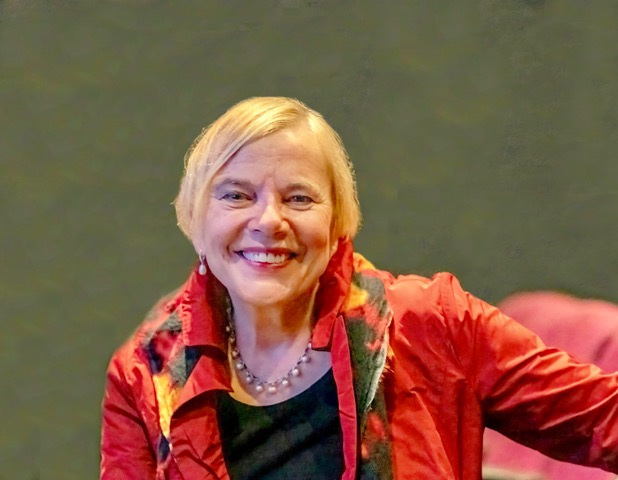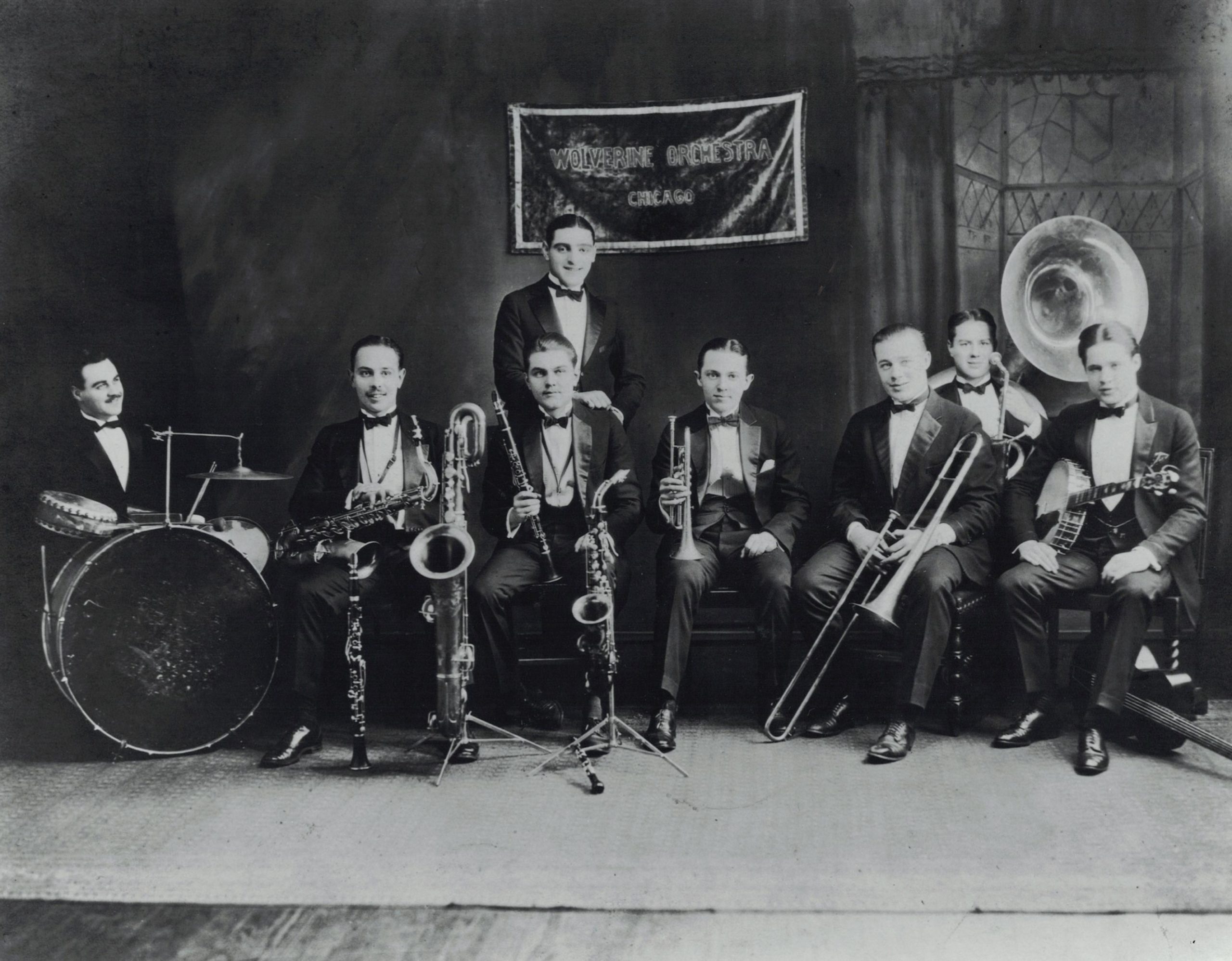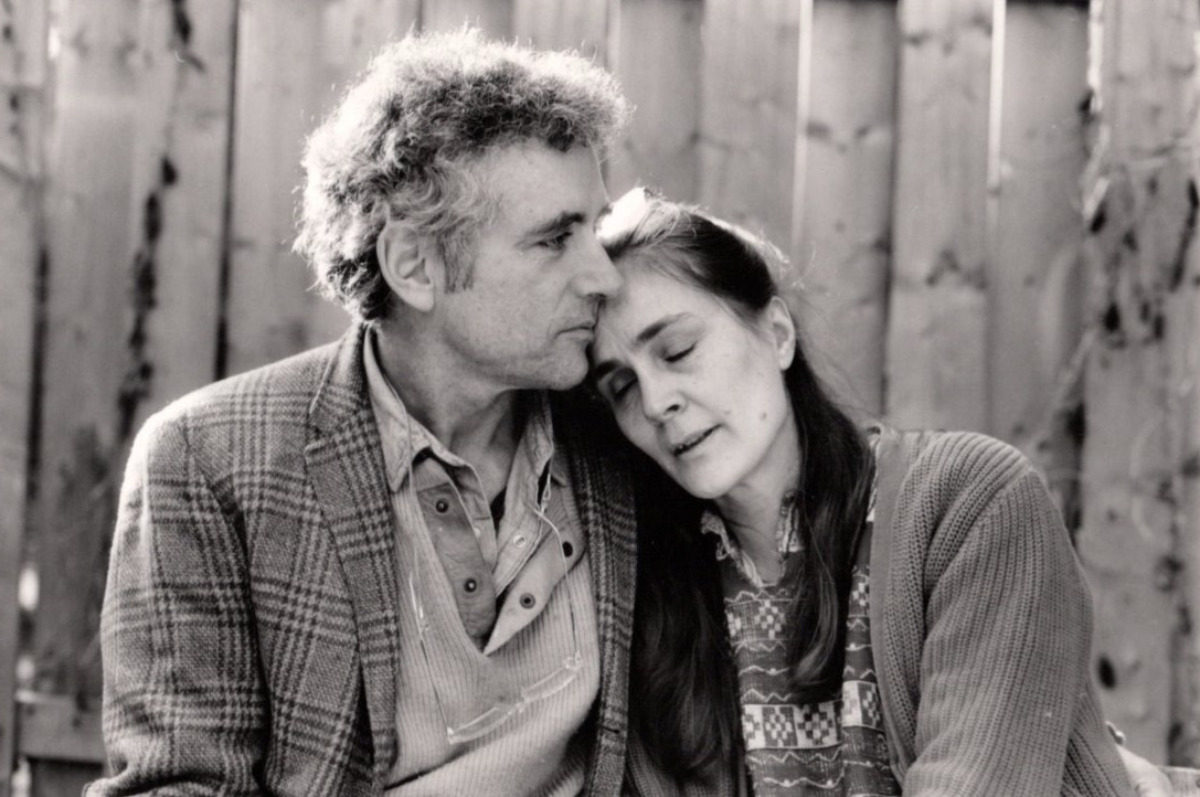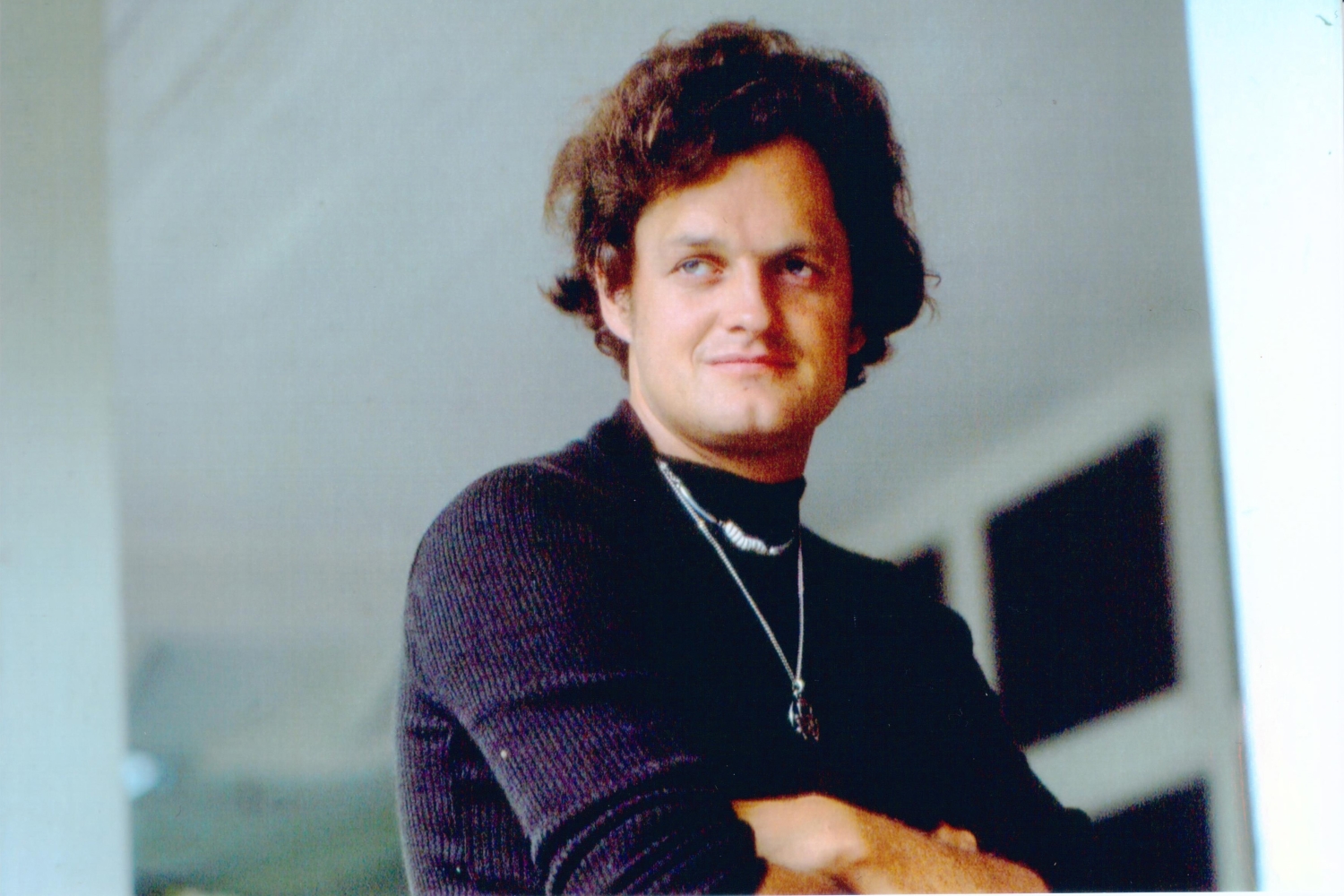Brigitte Berman is a pioneering, award-winning documentarian, having spent decades shaping Canada’s non-fiction landscape. The German-born filmmaker has found a home in this country since the 1950s. From her work as a journalist and producer at the CBC, through to her Oscar win for 1985’s Artie Shaw: Time Is All You’ve Got, and on to popular projects such as Robert Bateman: A Celebration of Nature (1984), her portrait of Gordon Pinsent The River of My Dreams (2016), and a much-lauded look at the lascivious maestro Hugh Hefner: Playboy, Activist and Rebel (2009), Berman has specialized in bio-docs and popular culture.
Her first feature, Bix: Ain’t None of Them Play Like Him Yet, released in 1981, tells the story of Leon Bismark “Bix” Beiderbecke, the preternaturally gifted musician from the 1920s who helped define the sound of jazz. With extensive conversations that evoke historical testimony, including the final interviews of legends such as [songwriter and pianist] Hoagy Carmichael, the film is a time capsule of a bygone era. Thanks to Berman’s tenacity and drive, she was able to allow those who knew the man and his music directly to have their say about his legacy.
During the lockdown, Berman initiated a restoration of the film, both image and audio, and nearly four decades after its initial release, the film is finding receptive audiences again. With a run at New York’s Film Forum, and an acquisition by Kino Lorber, Bix is also on a festival run, including at the Whistler Film Festival.
POV spoke to Berman from her Toronto home about her work, her journey, and the challenge of looking back at an older project through a contemporary gaze.

POV: Jason Gorber
BB: Brigitte Berman
The following has been edited for concision and clarity.
POV: Let’s talk about the landscape of music documentaries back then. What was it like to try to convince people to do a theatrical, full-length film about a musical legend who frankly even then was thought of as passé?
BB: Call me crazy—I thought this would be about half an hour or so. I originally didn’t get any funding, then finally got one investor and the Ontario Arts Council to give me some money. The rest of it was all done on spec and I paid for it out of my savings and just kept going. I deferred my wages and just did it out of passion. I don’t recommend it, at all, but if I hadn’t done that, the film wouldn’t exist.
POV: What other music films that were theatrical length were out there for you to use as a model? How were you going to get people to see it?
BB: I took it to all of the festivals. It got on television, and it got out theatrically in Sweden. It went to England, so it had comparably a pretty good run. Some films made today don’t even have that run! In my own little way, I managed to get it out there. I had a friend who was very artistic and he really told me that you’ve gotta believe in your vision. When the film was shown in New York recently, it went over so well that, in spite of the shutdowns and all of that, they still had to extend it!
POV: Reflecting back on it, do you see how the film has changed because not only you have changed, but the stories being told have changed? Would you have asked different questions of the artists now?
BB: That’s such a difficult question. The landscape is totally different. Civil rights is at the heart of it. I got that great interview on radio with Louis Armstrong, and I knew how important that was. I knew Black musicians, and I made friends with them. I made a point of talking to Doc Cheatham, a remarkable musician himself. Today, I would have shone that spotlight even more. I would present it in a much more inclusive platform and I would interview the musicians a little differently. But I have to say, I am quite proud of the fact that even in my naïveté at that time I instinctively went for Black music because I loved that music. I loved Louis Armstrong’s Hot Five and Hot Seven—that was my music! I played it all the time.
I thought more inclusive even back then. I made other films for the CBC about the Black community in Toronto, where I researched and interviewed and really brought that out, musically, artistically, socially in every which way. I was a little different because I grew up in New York. I did not grow up in Canada – even the whole French question, all of that was what’s the big deal, why are you making all of that fuss? Why not speak two languages? It’s great—speak three, you know? Being a woman, at that time, which was another thing, it was not the time for women to make films. So I was just passionate about my work, completely.
 POV: Who helped you along the way?
POV: Who helped you along the way?
BB: Don Haig – I mean, if it wasn’t for him, that film would not have been made! He said, look, if you get Hoagy Carmichael, I will help you. So through my friend in LA, I got Hoagy Carmichael. I flew down there, hired a crew, and did the interview. Don was thrilled and he came on board with me. He knew film inside out. I had a four and a half hour rough cut, five reels of film. Don came and would screen reel by reel by reel and he would leave me these very precise, handwritten notes. It was amazing because I learned to look at my film through his eyes, because I really adored and respected him.
POV: How would you describe Don Haig to somebody who doesn’t know him?
BB: Well, he’s the godfather of film, without being part of the mafia! He helped so many people, such as Patricia Rozema with I’ve Heard the Mermaids Singing. I would say he was the heart of the Canadian film industry. If you got him to help you, you had the best help in the world. But you had to prove it to him. He didn’t just do it willy-nilly. [Editor’s Note: Haig was an award-winning editor and producer, who worked at the CBC and the NFB, but was best known for running his own company, Film Arts.]
POV: Can you talk about that process of finding the interview subjects?
BB: Bill Challis [a legendary jazz arranger] was the key to all of it. I knew if I could get him to open up other keys would fit in the lock, so to speak. Bill was very, very hesitant. I went to see him, to only tape him, so he could meet me. I spent all afternoon with him and he was not as open as he could have been. If you notice, he’s in two different scenarios when he talks, right? Well, I went back a year later to interview him again, and he saw how serious I was about this. He relaxed and really gave me an open interview, and then he talked about Bix’s drinking. Charlie Davis [a jazz band leader and arranger], for instance, he was very easy to get. He lived in Oswego, just on the other side of Lake Ontario. We drove there, and he was amazing, and opened up.
POV: You had a window where these people were still alive and still have the memories. I’m guessing nobody had asked them for years about any of this?
BB: Nobody had asked them in a long time. They were fascinated why a woman and such a young person like me was doing this.
POV: Why were you, a woman and a young person, doing this? Why Bix?
BB: Because I loved the music. Music is my life, aside from film. There is a door of creativity inside of you. Some people have that door open a little bit; for some it’s shut, and some have it like half open. Well, with Bix, his door was flung wide open, and everything poured right out. That’s what I heard in his music. That’s what I hear when I listen to Louis Armstrong, and Lester Young.
POV: There’s always the hubris of who the hell am I to tell this story on the one hand, that surely somebody else is more qualified or would be better to tell the story. On the other hand, there’s the fact that the story will go untold if you don’t take the time an effort to tell it!
BB: When I was in New York, the musicians, they stood up and applauded, it was amazing. I realized, even as young as I was, and as naïve as I was in many ways, my passion saw me through. I wanted to say one thing more about Don Haig, if I may. I had pages and pages of his notes. After I whittled the film down to about two hours, I looked through the notes to see if I’d missed something. And I want you to know that I had addressed every one of his notes. What he pinpointed was absolutely right. I didn’t see it when I first began, but he made me look at the film differently.
POV: The inclusion of Louis Armstrong is so important in this film. His is the name that transcends the other participants. Did you do the radio interview?
BB: I did not do it. I became friends with the person who did it, and he allowed me to include it in the film.
POV: You film takes its time with the story, which is very different from how contemporary films would address such a tale. Now, in a post-MTV, post-VH1 “Behind the Music” landscape, would you tell it differently?
BB: One of the musicians told me, “I never walk in my own footsteps.” I couldn’t do it again. Absolutely not. I want to preserve that time capsule [when the film was made] because I know that it is highly respected and highly acknowledged because of when it was shown in New York and how people responded to it. Not everybody, you know – the impatient young, or the impatient older, they’ll leave it alone. I didn’t make the film for them. I made the film to preserve a time, to preserve a person, to preserve a place and time.
My films now are different. Look at my Hugh Hefner film: the pacing is very very different; the visuals, and the way I cut. I was supposed to start a film two years ago, which I had to put aside, and then the pandemic came, so eventually, I will go back to this film and make it, and this one will be very different because, thank god, I am of today! I’m looking at some of the really quick and fancy films today, They’re not telling the story well, and they’re all over the place—you know what I mean? Because I’m on the documentary committee for the Academy Awards, I see them all. You need to see The Velvet Queen. It’s about two people who patiently, patiently, wait for the snow leopard in Tibet. It’s a remarkable film. It tells its story. I loved the film Amy. It also had good storytelling.
 POV: Do you think people are actually responding better to Bix’s legacy now in 2021 than they did in 1981?
POV: Do you think people are actually responding better to Bix’s legacy now in 2021 than they did in 1981?
BB: There was an audience there [in 1981], but it was a small audience. I’ve now signed with a really good distributor. I know it’s in the right hands and I feel like the child has grown up and can go out, and I don’t have to worry about it anymore. People did not appreciate it in the way that Kino Lorber does now.
POV: What excites you about documentary now, and what is it that we may have lost a little bit?
BB: You know what I really love the most about documentary is that you don’t have to film it anymore. There’s no 16mm where you have to worry about running out, where you have to keep the sound running, and all of that. I taught in film workshops in schools and with young kids. I adore doing that because I love their enthusiasm and getting them going on it. I love the fact that you now can take your iPhone, and tell a story
POV: But what does that do to the films?
BB: It affects the storytelling. Not everybody can tell a story well. Not everybody takes the time to tell a story well. We are in a world of greater impatience, for good or for bad.
POV: Are you finding that we’ve kind of drifted away from doing things in a cinematic way and that people are only interested in the things that they’ve already been conditioned to be exposed to?
BB: The stories that are being told are important. The political stories excite me. Being able to go into a country with a small camera, not detected, where you can film, it’s phenomenal. Now, that’s not to my tastes, but I think it’s important and I want young filmmakers to do that, because we need to see those films. I continue to tell my films, but I tell them in a younger and younger way. You might call my Bix film indulgent. I would not. I would say that I am telling the story of what was there for these people [back in the Twenties]. For many of the musicians, it was their last interview, including Hoagy Carmichael. In my film, you get to feel what it was like in those days, with their pace. And that was one of the reasons I used repeated elements, because I wanted a person watching to feel what it was like to be on the road, that torturous, boring part of being on the road.
POV: Your film was unafraid to be repetitive because it was allowing the people the space to tell their stories, even if their stories overlapped. To allow them to be witnesses to what transpired. Is that a fair thing to say?
BB: That is a fair thing to say. Also I wanted to be respectful of all of them as musicians. A Black musician saw Bix differently than a white musician did. And I wanted to hear that.
POV: An arranger would see his career differently than a trombonist would.
BB: That’s right, and I wanted to bring that out. I was aware that I was making an historical film. That I was aware of.
POV: You felt you had the responsibility that you were not only making a film, but you were also documenting an era?
BB: Yes. And I felt that responsibility when I was making it. I feel I let down my responsibility by ignoring the film for so many years.
POV: How challenging was the restoration? You obviously had to scan all of the 16mm, and had to resync the sound and clean it up and get the elements together. What prompted this? Was this pre-COVID or were you sitting around thinking the world needs to see this now?
BB: During COVID, I was incredibly frustrated because I couldn’t do anything creatively. I decided, I’ve got to check into Bix and see what the elements looked like. I made an historical film, and it was going to disappear because of my own stupidity. I sent it down to Urban Post and the film was already deteriorating. Thankfully, I had digital copies of it. I had three, so they literally spliced together the best of the three.
POV: Do you know what digital format you actually had it on?
BB: DigiBeta. We checked it against the 16mm and it was just as good, if not better, than the film footage. So I did not go back to the 16mm.
POV: Where do you keep your Oscar?
BB: I keep it actually in my bedroom.
POV: Naked men with swords should always be kept in a bedroom.
BB: [Laughs]
POV: What made you restore this film first?
BB: This film holds a special place in my heart. I’m surprised that I actually ignored it for so long. I was pretty pissed off with myself. But then, a lot of things have happened in my life, and there’s always a right time for everything. This was the right time to restore it and thankfully I knew it and I did it.
POV: Why this one instead of the Artie Shaw film?
BB: That film got the Oscar, and the original copy of that is with the Academy. If anything were to happen to me, they would know how to do it. They could restore it. With Bix, nobody would bother, really. I had to do it, and now it’s in the Library of Congress. I’m doing all of the right things to finish it!
POV: You made a film because you thought nobody else would make this film unless you made this film. You restored this film because you thought if you didn’t restore it, nobody else would restore this film, and you have presented this film to an audience, unaware whether or not 40 something years later, there would be an audience for it. There is.
BB: There is. I was amazed that there is.
Bix: Ain’t None of Them Play Like Him Yet screens online at the Whistler Film Festival beginning Dec. 12.













